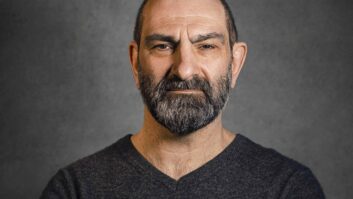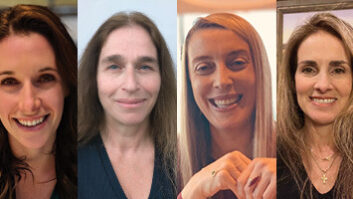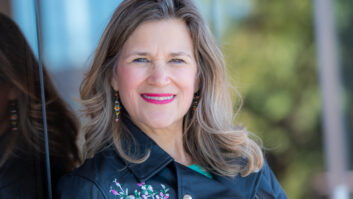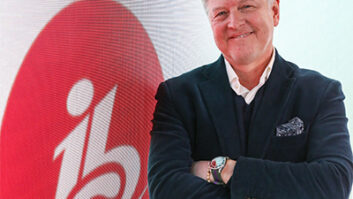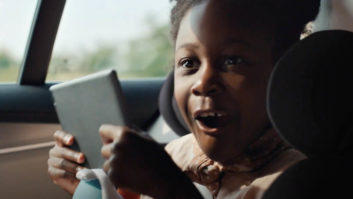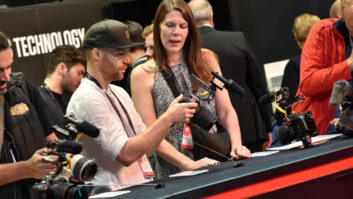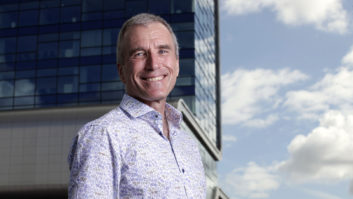Rory Springthorpe, founder and director at outside broadcasting company Vivid Broadcast, talks to TVBEurope about his route into the industry and understanding the value of teamwork.
Talk us through an average day in your role
I think that’s probably one of the great things about working in media – there really isn’t such a thing as an average day. One day it’s meeting with a major fashion brand, then meeting internally with the team on a project or jumping on a plane to do a show in India or New York. I guess the more consistent thing is what am I responsible for? I spend a lot of time thinking about the next thing – where are we going, what do we need to do to get there and what is holding us back. Our industry is all about the people – yes the equipment is important but without people we’re nothing. So a key part of my role is around building the right teams to work on each project and finding the way to look after those people.
Running an outside broadcast and production company is anything but a straight line – there are bumps, mountains and ditches along the way that need to be navigated, and the earlier they are spotted the easier it is to deal with them, rather than waiting until you’re deep in a ditch and trying to find the way back up. Having the right people around you for each stage of the journey is so important, and recognising that the right people might vary for different seasons. I’m keen to support staff to be all they can be – irrespective of whether that means they stay with us or whether that journey takes them another route – whatever is best for them is ultimately the best for the company. That support comes in a number of ways, from making sure people have the right tools for the job, making sure colleagues feel supported in their roles and also ensuring people always feel part of a bigger team, whether they be in the office or on location. So overall, I’m looking at how to develop people, provide the right opportunities, provide stretch moments whilst in a supported environment.
How did you get started in the media industry?
Accidentally is probably the most accurate. My dad was a professional industrial photographer and I would help him on shoots, travelling around the country taking pictures of fascinating things, setting up equipment and being able to be in places that otherwise you just wouldn’t find yourself. I initially started working in the charity sector for the first few years and then a friend and I started Vivid in 2005, initially mainly to be able to develop the work in the NGO and not-for-profit sector but that quickly expanded into multi-camera production and more and more work for broadcasters before becoming an approved BBC supplier (our first project was Radio 1 Big Weekend and then closely followed by Antiques Roadshow).
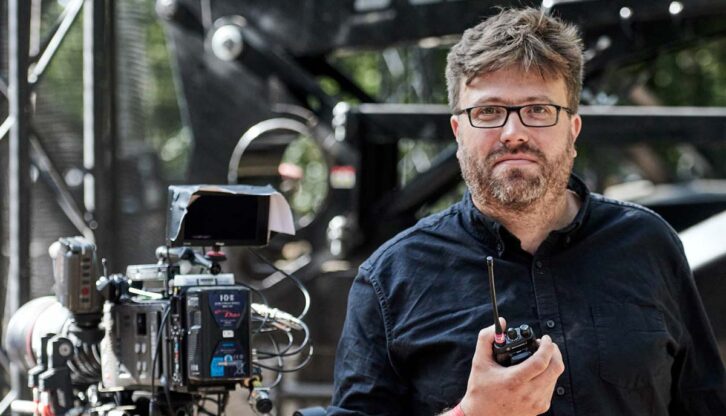
Over the years we’ve just kept turning up, kept saying yes to new challenges and tried to keep production values and great people at the centre of what we do. Today we have a staff of over 20, have filmed in over 30 countries around the world and produced literally thousands of hours of live television – from Glastonbury to National Theatre, ColdPlay to Burberry. Festivals, theatre, sport, music, fashion, comedy, factual, studio and sitcom.
What training did you have before entering the industry?
I trained to be a pilot – so not too connected! I was home educated and after sixth form college went straight to working in outdoor pursuits, during which time I set up my first business building tree houses in Kent (yes that is a thing). I think you can learn lessons from wherever you are and whatever you do. Flying teaches you to do things like how to scan instruments and scan outside – a sequence of intense, fixated observations. It teaches you to not focus so much on one thing that you miss something coming up, it makes you understand the importance of trusting your instruments and not ignoring the information they are telling you. All principles that can be transferred to business.
Why do you enjoy working in the industry?
The variety of people and projects. From filming underwater to in helicopters, meeting kings and queens, telling stories of the forgotten and the marginalised, working with famous musicians and artists from around the world. The opportunities that come with this industry are incredible. I love that our work isn’t about what I can achieve, but what a group of people working together can achieve. You can be the best director in the world but if you don’t have engineers, riggers, camera crew and lighting directors to work with you then you are nothing – each production has to be a team working at their best, respecting each others’ role, supporting each other. At Vivid, we’re passionate about starting as a team and finishing as a team – just because your job is done, if there are issues in another area or someone else is struggling, then we all jump in and help – all for one and one for all. I think staying involved in the details but letting others make the decisions is important. I love being surrounded by people who are much better at many things than I am. Knowing the difference between micro management versus staying engaged in different areas is really key. As a team we run quite a flat structure where anyone within the company can influence any area of the business – ultimately if you have a good idea for IT but work in sound then we want to hear it.
What piece of advice would you offer someone looking to explore a role similar to yours?
Make the most of every opportunity, no matter how small or insignificant it might feel at the time. The root of the word amateur is “one who loves” i.e. someone who does something for the love of it. Within the broadcast world there are many people who start the journey doing it for the love of it but then, as familiarity creeps in and the reality of work/life balance and pressures of each project they start hit, the love can easily be replaced by tiredness or a sense of frustration at not developing the way you thought it would or of entitlement and comparison to someone else. I think it’s so important to remember why you started in the industry and to keep coming back to what you love and to stay true to your lane and journey – your challenge is to be the best you that you can be and not to have someone else’s career. If you love telling stories but find yourself doing a job that just involves basic camera work then take your creativity outside of your job – pick up the thing that you love doing. If you are passionate about recording classical music and find yourself doing football sound assisting every week, don’t get frustrated that you aren’t doing classical but instead find a way to follow your passion outside of the daily task and then you’ll be amazed by the doors that open up.
